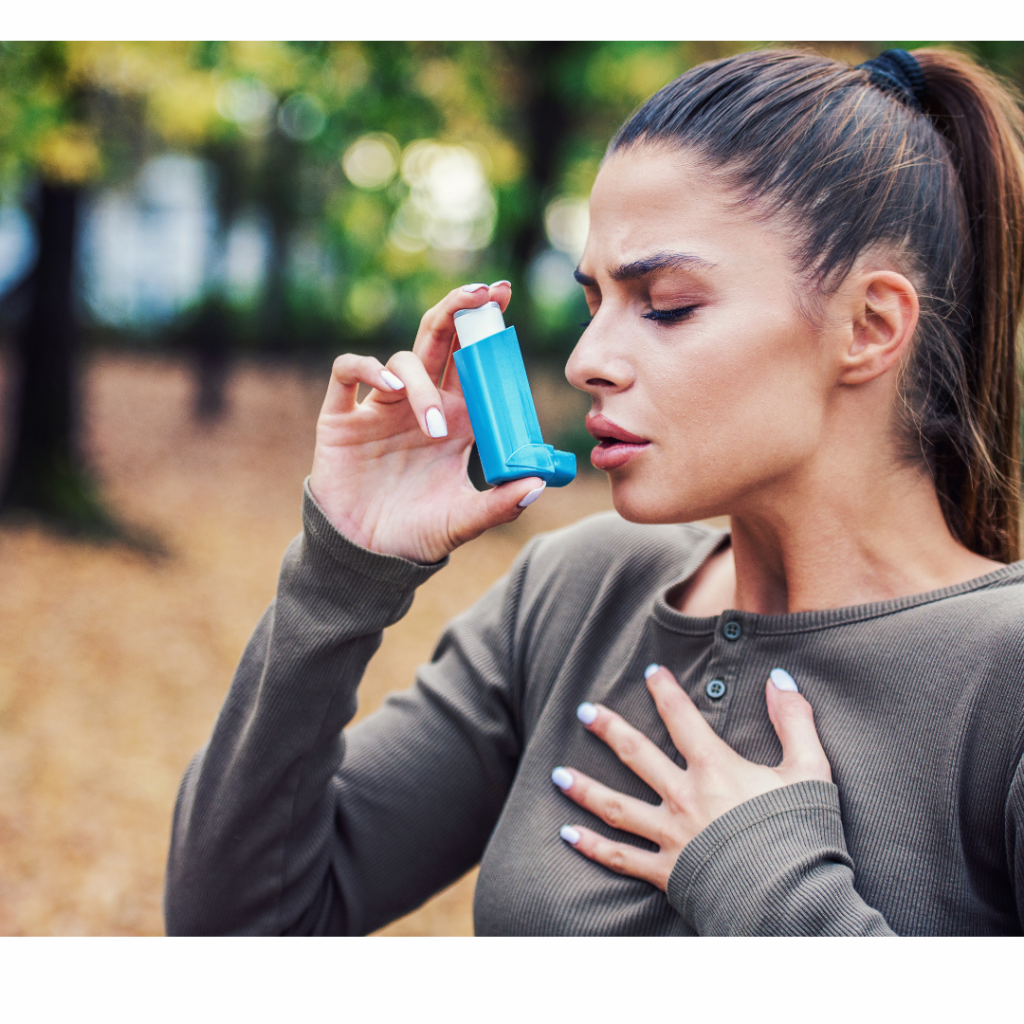By: Kaelyn Lacefield
Winter in Texas brings cooler temperatures and a break from the scorching summer heat, but for many Texans, especially those with asthma, this season can mean an increase in respiratory challenges. While Texas may not experience the harsh winters of northern states, the unique climate and potential for sudden temperature shifts pose their own risks. This combined guide will provide Texas residents with detailed strategies for managing asthma during the winter months, minimizing flare-ups, and staying healthy.
1. Understanding Winter Triggers in Texas
The winter season in Texas presents specific asthma triggers that individuals need to be aware of:
- Cold Air: Sudden drops in temperature can constrict the airways, leading to breathing difficulties. Cold, dry air is especially problematic, as it irritates the airways and exacerbates asthma symptoms.
- Indoor Allergens: The colder season means more time spent indoors, which increases exposure to common triggers like dust mites, mold, and pet dander.
- Seasonal Illnesses: The winter months coincide with flu and cold season, which can lead to respiratory infections that worsen asthma.
- Air Quality Concerns: The use of heaters and less ventilation in winter can lead to a buildup of indoor pollutants, making breathing more difficult for those with asthma.

2. Managing Asthma During Texas Winters
Proper asthma management during winter requires a multi-pronged approach:
a. Preparation for Cold Air
- Wear a Scarf or Mask Outdoors: Covering your mouth and nose with a scarf or mask helps warm and humidify the air before it reaches your lungs, reducing the risk of asthma symptoms triggered by cold air.
- Layer Up: Wearing appropriate clothing helps maintain body warmth and prevents sudden exposure to cold air that could trigger symptoms.
b. Maintain a Clean and Safe Indoor Environment
- Air Purification: Use air purifiers equipped with HEPA filters to remove allergens like dust, pet dander, and mold spores from the air. Regularly change HVAC filters to maintain high indoor air quality.
- Humidity Control: Ideal indoor humidity levels for those with asthma range from 30% to 50%. Using a humidifier can help if the air becomes too dry, but avoid excessive humidity, as it can promote mold growth.
- Reduce Pet Dander: If you have pets, ensure regular grooming and vacuuming with a HEPA filter vacuum cleaner to keep dander levels down.
- Avoid Irritants: Fireplaces, candles, and scented products can emit particles and odors that may irritate the airways. Opt for flameless candles and electric fireplaces for a cozy atmosphere without the risk.
c. Health and Hygiene Practices
- Get Your Flu Shot: Preventing illnesses like the flu and common colds is crucial for reducing respiratory complications that could trigger asthma attacks.
- Hydration: Staying hydrated is essential, as it helps keep mucous membranes moist, reducing irritation in the airways. Drinking warm fluids such as herbal tea can provide soothing benefits.
- Hand Hygiene: Wash your hands regularly to prevent the spread of colds and flu, which can worsen asthma symptoms.
d. Medication Management
- Update Your Asthma Action Plan: Work with your healthcare provider to create or revise your asthma action plan for the winter months. This plan should outline specific steps to take in case of exposure to cold air or an asthma attack.
- Inhaler Readiness: Ensure your rescue inhaler and preventive medications are up to date and stored in a cool, dry place for optimal efficacy.
- Routine Checkups: Schedule regular checkups to discuss any changes in your symptoms and to adjust medication if needed.
3. Weather Preparedness and Monitoring
Winter weather in Texas can vary significantly, with warm days interspersed with sudden cold snaps. Staying informed about weather forecasts is crucial for effective asthma management. Here are some tips:
- Weather Alerts: Keep an eye on local weather reports and be prepared to adjust plans if cold air or high allergen levels are forecasted.
- Emergency Kit: Carry a portable asthma care kit with your inhaler, medications, and a scarf for outdoor excursions.

4. Staying Active and Healthy
Exercise is important for overall health but can be more challenging during colder months for those with asthma:
- Indoor Activities: Opt for indoor workouts like yoga, Pilates, or treadmill exercises to stay active without exposing yourself to cold air.
- Pre-Exercise Medication: Use your pre-exercise inhaler as prescribed by your doctor to prevent exercise-induced asthma.
- Gradual Warm-Up: If you plan to exercise outdoors, start with a slow warm-up period indoors to acclimate your body and lungs.
5. Recognizing Early Warning Signs
It’s essential to recognize and act on early signs of asthma to prevent serious flare-ups:
- Common Symptoms: Increased coughing, wheezing, and shortness of breath can indicate that your asthma is being triggered. Act promptly by using your rescue inhaler as directed.
- Seek Medical Attention: If symptoms persist or worsen despite treatment, contact your healthcare provider. Severe asthma attacks should be treated as medical emergencies.
6. Asthma and Winter Allergies
Winter can still bring allergy triggers that worsen asthma:
- Mold Prevention: Check for mold growth in bathrooms, basements, and under sinks, especially in humid areas. Promptly address any signs of mold to prevent it from becoming a problem.
- Dust Mite Reduction: Wash bed linens weekly in hot water and use allergen-proof pillowcases and mattresses to limit exposure to dust mites.
Managing asthma during the winter months in Texas requires preparation, awareness, and practical lifestyle adjustments. By understanding the triggers, maintaining a clean and healthy indoor environment, staying prepared for weather changes, and following a tailored asthma action plan, you can reduce the risk of flare-ups and maintain respiratory health.